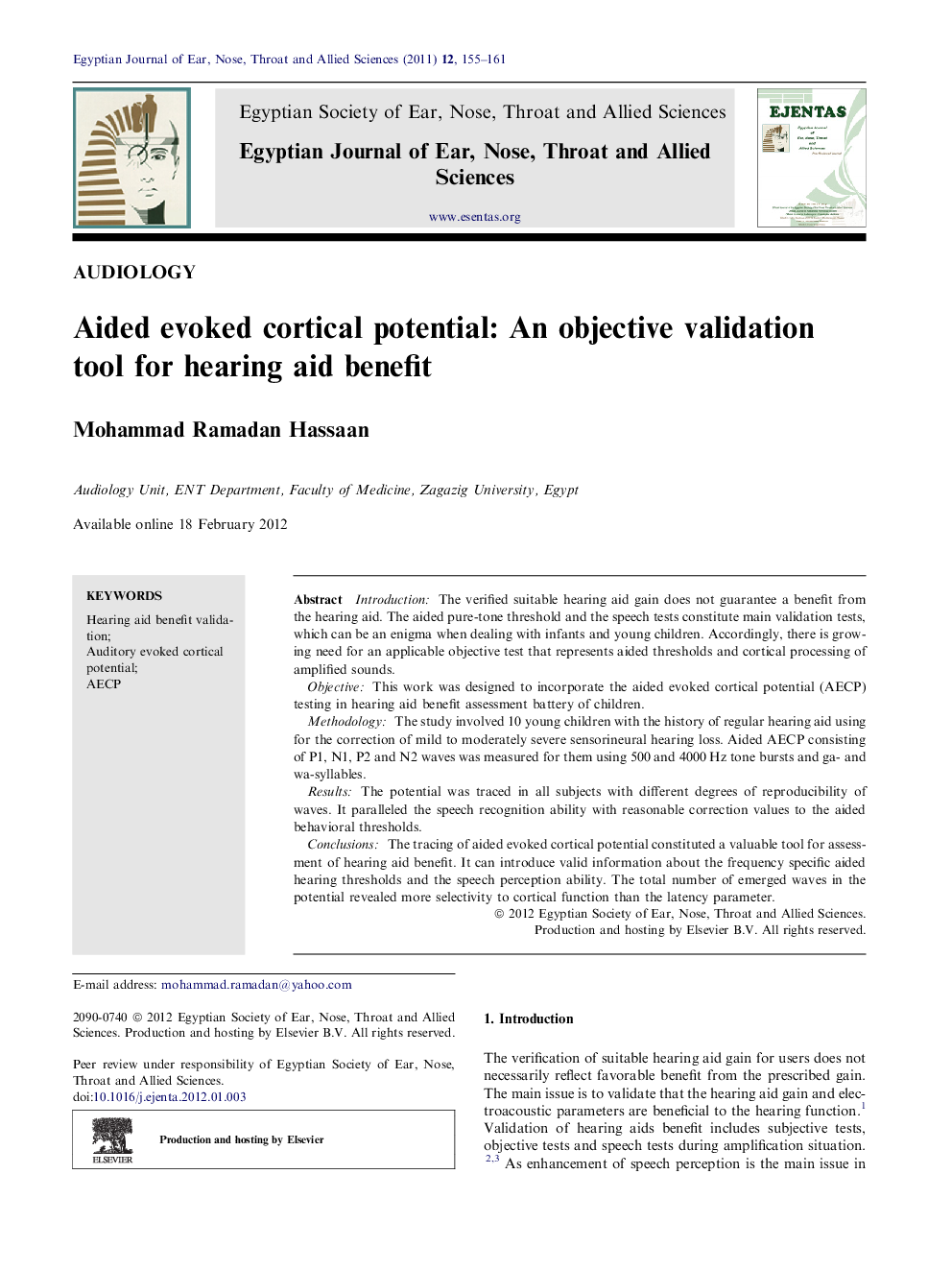| کد مقاله | کد نشریه | سال انتشار | مقاله انگلیسی | نسخه تمام متن |
|---|---|---|---|---|
| 4109035 | 1605669 | 2011 | 7 صفحه PDF | دانلود رایگان |

IntroductionThe verified suitable hearing aid gain does not guarantee a benefit from the hearing aid. The aided pure-tone threshold and the speech tests constitute main validation tests, which can be an enigma when dealing with infants and young children. Accordingly, there is growing need for an applicable objective test that represents aided thresholds and cortical processing of amplified sounds.ObjectiveThis work was designed to incorporate the aided evoked cortical potential (AECP) testing in hearing aid benefit assessment battery of children.MethodologyThe study involved 10 young children with the history of regular hearing aid using for the correction of mild to moderately severe sensorineural hearing loss. Aided AECP consisting of P1, N1, P2 and N2 waves was measured for them using 500 and 4000 Hz tone bursts and ga- and wa-syllables.ResultsThe potential was traced in all subjects with different degrees of reproducibility of waves. It paralleled the speech recognition ability with reasonable correction values to the aided behavioral thresholds.ConclusionsThe tracing of aided evoked cortical potential constituted a valuable tool for assessment of hearing aid benefit. It can introduce valid information about the frequency specific aided hearing thresholds and the speech perception ability. The total number of emerged waves in the potential revealed more selectivity to cortical function than the latency parameter.
Journal: Egyptian Journal of Ear, Nose, Throat and Allied Sciences - Volume 12, Issue 3, November 2011, Pages 155–161